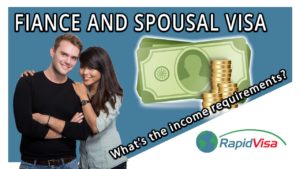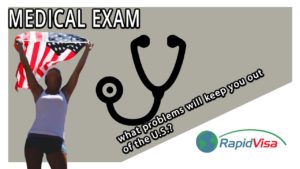Homeland Security recently issued a new public charge rule that our customers have been asking about, so we wanted to briefly go over this.
A “Public Charge”, as defined by the USCIS, is a person who is likely to become:
...primarily dependent on the government for subsistence, as demonstrated by either the receipt of public cash assistance for income maintenance or institutionalization for long-term care at government expense.
In other words, a public charge is a person who cannot support themselves financially and depends on certain welfare benefits. People who are likely to become a public charge are not admissible to the U.S. and are not eligible to receive a permanent resident card. This has been the rule for many years.
There are 2 major factors that concern our customers about this new rule.
Factor 1 - Use of Certain Public Benefits By the Applicant
Now, any non-immigrant alien who is intending to adjust status and has used any public benefits in the USA, they would be denied a visa. The language of the new rule specifically mentions the alien, and not the US citizen sponsor. In this case, the public benefits must have been received directly by the applicant for the applicant’s own benefit.
The new rule, which goes into effect on October 15, 2019, mentions the following benefits considered:
- Any federal, state, local, or tribal cash assistance for income maintenance
- Supplemental Security Income (SSI)
- Temporary Assistance for Needy Families (TANF)
- Federal, state or local cash benefit programs for income maintenance (often called “General Assistance” in the state context, but which may exist under other names)
- Supplemental Nutrition Assistance Program (SNAP, or formerly called “Food Stamps”)
- Section 8 Housing Assistance under the Housing Choice Voucher Program
- Section 8 Project-Based Rental Assistance (including Moderate Rehabilitation)
- Public Housing under section 9 the Housing Act of 1937, 42 U.S.C. 1437 et seq.
- Federally funded Medicaid (with certain exclusions)
In general, it’s fairly uncommon for a non-immigrant to receive any of these benefits.
Factor 2 - 250% of Poverty Line (Safe Zone... But Not Necessarily a "Requirement")
The sponsor is required to meet at least 125% of the poverty threshold. This has been the rule and is not changing, per se. What is changing is that they are setting the bar higher by explicitly stating that if your income is below 250% of the poverty threshold, your case will receive more scrutiny, and may be, depending on other factors of your case, cause for a denial.
So while the minimum income is still only 125%, all cases between 125 and 250% will receive more scrutiny and perhaps increasing denials. Sponsors making less than 250% of the poverty guidelines are advised to provide as much information about their finances as possible. So a family of 4 would need to make at least $64,374 to be in the “safe zone” of income. This is unprecedented and we understand everyone’s concern. We don’t know how much scrutiny applicants can expect to receive in that grey area between 125 and 250%, which is the most concerning aspect of this, and we won’t know until we start seeing RFEs and denials come in after it goes into effect.
To find out the income requirement for your case, go here.
The best thing you can possibly do is file asap. Give us a call right away to get started.


